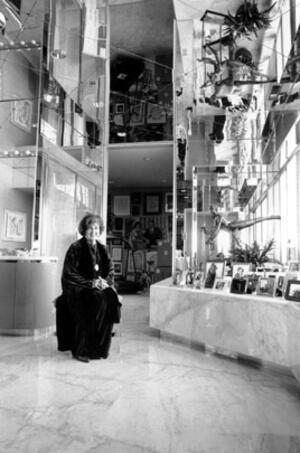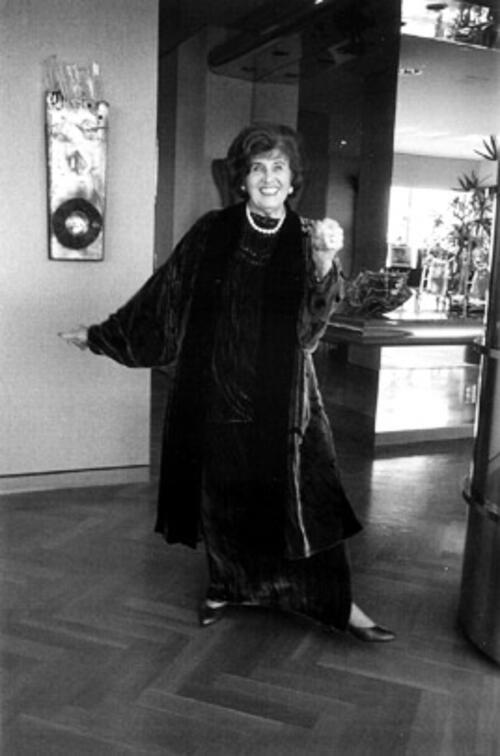Althea Diesenhaus Stroum
What’s in a Name
“My parents and two sisters lived in Detroit, Michigan. My mom was pregnant with her third child. Living next door to my family was a neighbor, whose daughter was named Althea. My mother had decided to name me after my great grandmother, Alta Tsporia. Alta Tsporia became my Hebrew name and Althea my formal name. Thus, when I was born in New York, I inherited the names of my great grandmother, the Greek Goddess Althea, and Moses' wife, Tsporia. I’ve always loved my name.”
The Art of Motherhood
“My mother was a pretty open-minded person. She exposed me to all the arts and the theater. She loved music, opera, symphony, and even though we weren’t in the means, especially because of my father’s death, she managed to take me by subway and we’d go downtown. That’s the first time I went to the Metropolitan Museum in New York and the History Museum and then I remember going to shows and my uncles were all in choirs and so music and art were very, very prominent in our family.
“When I look back, I realize what a tremendous person my mother was. She always had her philosophy about everything. ‘Forgive and forget.’ ‘One in the hand is worth two in the bush.’ I can remember thousands of little things that she would quote and her education was just grade school. But she was a very bright lady. She did my father’s accounting and her other part was interested in the arts. She kept herself very involved in all the organizations. I think that influenced me, and my sisters too.”
The Art of Giving
“I worked for my brother-in-law part time when I was 18, it made me feel independent although I didn’t keep the money for myself. I got $25 a week, so I gave the whole check to my mother. And my mother gave me back 35 or 40 cents a day for my lunch.
“After the War, as soon as Sam started working, we started giving. We started giving when we were very young. The more you give away, the more you'll get back. That was Sam’s and my philosophy. Even when we didn’t have great means to do so.
“It was interesting the way charity affected both of us. We were very proud of the fact that we were able to do it. He made me feel that the most important thing was to set an example, trying to lead the way into making people see how important it was to give of themselves, financially and through their volunteering. I was more or less raised that way by my mom and her family as far as tzedakah [charity] was concerned. My mother’s teaching became a way of life. I’ve tried to pass on to my daughters and grandchildren the lessons I’ve learned.”




